TABLE OF CONTENTS
If the world has you stressed, refer to these 21 best weed strains for anxiety disorders.
Some simple ways to relieve your anxiety include exercise, socializing, laughing, deep breathing, practicing mindfulness, and many other methods including consuming marijuana.
Is Marijuana Good For Anxiety?
Cannabis has been shown to be beneficial with conditions such as social anxiety, phobias, and obsessive-compulsive disorder (OCD).
Marijuana has also been shown to reduce pain and inflammation, as well as induce sleep for insomnia patients. Feeling more comfortable in your skin can dramatically lower your anxiety. But what are the best weed strains for anxiety and will they help me?
Can You Get Medical Cannabis For Anxiety?
Many states across the country now list anxiety, depression, and post-traumatic stress disorder (PTSD) as qualifying conditions allowing patients to participate in their medical marijuana program.
Patients can receive a prescription from a licensed marijuana doctor, fill out an application, and start buying and growing (if allowed) when they receive their medical card.
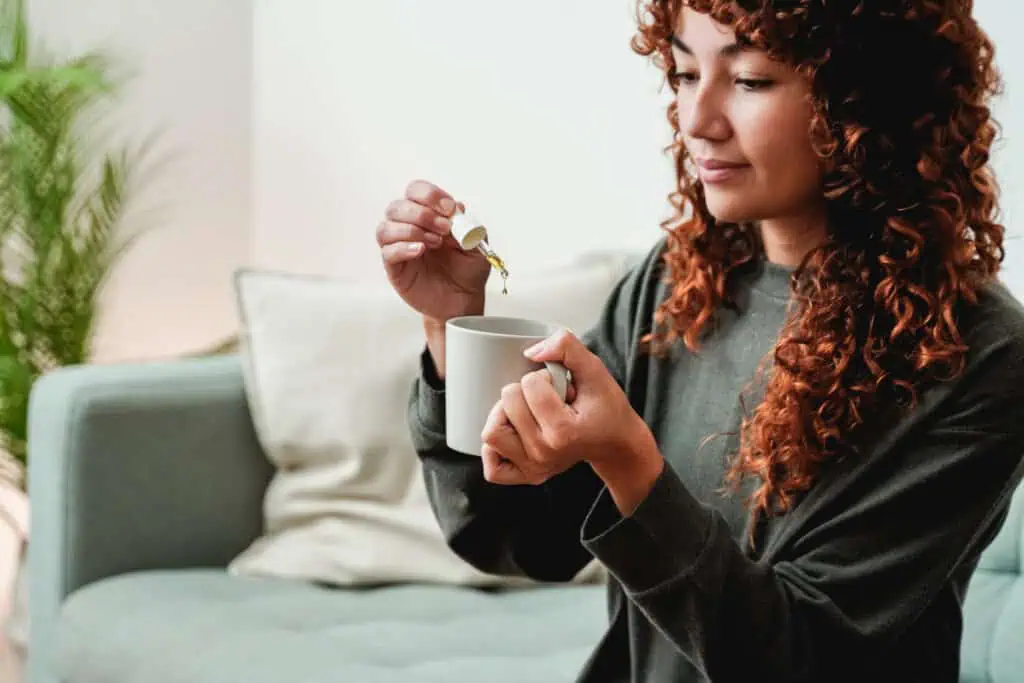
Anxiety Disorders Cannabis Can Help With
The risk factors associated with anxiety can be complex. Many of those who suffer from it also struggle with depression. Nearly half of those who suffer from depression also suffer from anxiety disorder.
Other factors that can result in chronic anxiety are traumatic life events, brain chemistry, and personality. Because anxiety can be a trend in families, genetics are also thought to play a role.
- Obsessive Compulsive Disorder (OCD) and Post-Traumatic Stress Disorder (PTSD) are closely related to anxiety and often are considered to be forms of it. Many people suffer from both simultaneously, along with depression. The large number of Americans on antidepressant medication benefit from it for their anxiety. Numerous categories of anxiety are commonly diagnosed. Let’s identify some of the most-common forms.
- Major Depressive Disorder (MDD). This is the most common cause of disability in the US for people ages 15 to 45. More than 16 million Americans suffer from it in a given year. MDD can occur at any age, but it is most common in women in their early 30s.
- Persistent Depressive Disorder (PDD). PDD is long-term depression that lasts longer than two years. It impacts 3.3 million American over the age of 18, but more than 60 percent of those who suffer from it receive treatment.
- Generalized Anxiety Disorder (GAD). The are 6.8 million adults who suffer from GAD, yet less than 44 percent of them receive treatment. Women are twice as likely to suffer from GAD than men.
- Panic Disorder (PD). Many people suffer from panic attacks, and many people consider this term to be synonymous with anxiety, although it is just one of the diagnosable forms. Again, women suffer from it the most, with twice as many of them affected by it compared to men.
- Social Anxiety Disorder (SAD). Another common type of anxiety strikes people when they are exposed to crowded social situations. Nearly 7 percent of Americans are affected by SAD, which equates to 15 million adults. Men and women are equally impacted by it, with some of them having experienced it since age 13.
- Specific Phobias (SP). The fear of specific situations or things is common, and you have likely known someone who experiences this condition—or you might even struggle with it yourself. Ophidiophobia (fear of snakes) and Acrophobia (fear of heights) are two of the most common types of SP. Despite these fears being seeming irrational, they are very real to and can profoundly affect those afflicted with them. SP affects 8.7 percent of the US population (19 million adults), with women twice as likely to experience it than men.
- Obsessive Compulsive Disorder (OCD). OCD affects 1 percent of the US population (more than 2.2 million adults). Both men and women are equally affected by it. Most people with OCD show signs of it by age 19, with some showing signs as early as 14.
- Posttraumatic Stress Disorder (PTSD). Women are more commonly affected by PTSD than men, which is likely because rape is the most likely trigger for it. Among rape victims, 65 percent of men and 46 percent of women will develop the disorder. Childhood sexual abuse is a leading cause of PTSD.
For many people who experience anxiety on a regular basis, cannabis is an effective way of controlling it. Since some cannabis strains also work well for treating depression—which commonly occurs with anxiety—these two commonly concurrent mental disorders can benefit from its use.
Can Cannabis Cause Negative Side Effects for People with Anxiety?
For many people, cannabis has helped them get instant and long-lasting anxiety and stress relief when they need it most. However, cannabis affects everyone differently. What works for one person may not work for another.
In some cases, users may not notice any effect, especially after taking non-intoxicating CBD products. In a worst-case scenario, cannabis use can actually worsen the symptoms of anxiety or cause dependence and addiction.
THC, the main intoxicating compound in cannabis, is the primary reason for the negative side effects people may experience. High concentrations of THC have been linked with increased anxiety symptoms including a rapid heart rate and racing thoughts.
Negative side effects include:
- Rapid heart rate
- Racing thoughts
- Paranoia
- Hallucinations or psychosis
- Irritability/mood swings
- Difficulty concentrating
- Short-term memory issues
- Increased sweating
- Confusion/brain fog
- Lower motivation
- Sleeping issues
One of the main reasons people turn to cannabis is due to the negative side effects of other prescription anxiety medications.
While cannabis may produce mild side effects, it should not be treated as a long-term treatment option such as psychotherapy or medication. Cannabis offers immediate and short-term relief. Here are the best weed strains for anxiety that balance THC and CBD.
Best Weed Strains For Anxiety
Marijuana strains are not all the same. Each strain features varying concentrations of cannabinoids, terpenes, and other therapeutic compounds. The most common compounds are tetrahydrocannabinol (THC) and cannabidiol (CBD). THC produces a euphoric and intoxicating high, while CBD has anxiolytic properties.
For anxiety, low-THC and high-CBD strains are ideal. This helps reduce THC’s, sometimes, anxiety-inducing effects and increase CBD’s clear-headed effects.
Besides cannabinoid content, consider terpenes, too. A full spectrum of cannabinoids and terpenes has been shown to contribute to an improved “entourage effect” in which the compounds work together to elevate the health benefits while reducing the negative side effects. Finding the sweet spot of cannabinoids and terpenes can take time.
Common anxiety-relieving terpenes include:
1. ACDC Strain
ACDC strain's anxiety-reducing effects are legendary. ACDC is a sativa-dominant phenotype of another CBD-rich marijuana strain: Cannatonic. ACDC’s 20:1 CBD-to-THC ratio produces almost no intoxicating high. Instead, ACDC provides blissful relief for anxiety, epilepsy, inflammation, and pain.
2. Canna-Tsu Strain
Canna-Tsu is a balanced CBD-rich hybrid strain made from Cannatonic and Sour Tsunami genetics. Canna-Tsu’s CBD-forward characteristics provide users with focus and mellowing effects that can reduce anxiety. Canna-Tsu is also preferred by patients with pain, inflammation, and seizures.
3. Cannatonic Strain
Cannatonic features balanced CBD:THC ratios of 1:1 or 2:1 that can put nearly anyone in a better mood. Cannatonic’s mellowing effects provide a subtle buzz that still allows users to function and be productive.
4. Critical Mass Strain
Critical Mass is an indica-dominant strain that has been bred over the years to maximize its CBD concentration. CBD levels can reach between eight and 12 percent with THC levels between five and eight percent.
5. Pennywise Strain
Pennywise is a balanced CBD:THC strain that provides users with a clear-headed and blissful experience. Pennywise’s low intoxicating effects provide just the right mental boost without worsening anxiety or paranoia.
Pennywise has also been used to treat arthritis, epilepsy, pain, and inflammation.
6. Remedy Strain
Remedy is a CBD-dominant marijuana strain that is a go-to for many users with anxiety. Remedy high-CBD content and myrcene, pinene, and caryophyllene levels make this one of the most calming strains around.
Users can fall into a tranquil state where worries are rare. Remedy has also helped patients to treat pain, inflammation, and headaches.
7. Jack Herer Strain
Jack Herer is an invigorating sativa-dominant cannabis strain with a high concentration of terpinolene, caryophyllene, and pinene terpenes. Jack Herer provides a moderate euphoric high that can keep users focused and alert.
8. White Widow Strain
White Widow is a popular strain among Dutch coffee shop aficionados. White Widow delivers refreshing, euphoric effects that can provide an anxious patient with energy and creativity.
9. Northern Lights Strain
As far as indica-dominant strains go, Northern Lights is an iconic strain beloved for its relaxing and sedating effects.
Northern Lights strain can promote feelings of happiness and tranquility. Users may also feel more focused and creative after consuming this indica hybrid.
10. Granddaddy Purple Strain
Granddaddy Purple (GDP) is an indica-dominant marijuana strain descended from Bid Bud and Purple Urkle strains.
GDP’s physically relaxing effects can ease pain and muscle tension while promoting a better mood and stress relief. Let GDP’s sweet berry and grape aroma take you into a state of deep relaxation.
11. Purple Urkle Strain
Purple Urkle strain effects touch the mind and body with deep muscle relaxation and a cerebral haze that can whisk you to a peaceful slumber.
With fresh notes of grapes, berries, and a hint of skunk, Purple Urkle is the perfect evening or nighttime strain to reduce anxiety.
12. Strawberry Cough Strain
Strawberry Cough’s energetic high allows those suffering from anxiety to feel better and more sociable.
Anxiety patients can feel uplifted and happy due to Strawberry Cough’s balanced and euphoric effects, as well as its sweet and piney aroma. Strawberry Cough strain is also helpful for fatigue and pain.
13. Harlequin Strain
Harlequin is a CBD-rich sativa-dominant hybrid with CBD levels reaching up to 16 percent. Harlequin’s THC content hovers between four and seven percent. For patients with anxiety, Harlequin produces clear-headed effects allowing users to feel more alert, productive, and relaxed.
14. Trident Strain
Trident is a high-CBD marijuana strain that elicits mental focus and a slight cerebral buzz. CBD levels are about 12 percent and THC levels are under six percent. Trident is also effective at treating pain and epilepsy.
15. Valentine X Strain
Valentine X is a balanced strain with a very high CBD-to-THC ratio reaching up to 25:1 levels. Valentine X is a phenotype of ACDC, another popular strain meant to reduce anxiety and increase feelings of creativity.
16. Jillybean
While Jillybean is a THC-rich marijuana strain, it offers users a balanced blend of invigorating and relaxing effects. Jillybean has a hint of citrus aroma and flavor that makes the consumption experience that much more energizing.
17. Royal Highness
Royal Highness strain has a balanced 1:1 THC:CBD ratio that reduces the risk of worsening your anxiety symptoms. This strain elicits motivating and blissful effects, perfect for daytime use when you want to be productive or social.
18. Elektra
Elektra, bred by crossing Early Resin Berry and ACDC strains, is a CBD-dominant strain with higher-than-average CBD concentrations compared to most hemp flowers.
Elektra has strong levels of beta-caryophyllene, myrcene, and limonene, all of which may help provide relaxing and anxiety-relieving effects. In terms of flavor and smell, Elektra has hints of dark chocolate, red wine, and citrus.
19. Kosher Kush
Kosher Kush is an indica-dominant strain that has medium-to-high levels of THC. Despite its high THC content, it has higher-than-average levels of the trans-nerolidol terpene. This terpene is commonly used in aromatherapy solutions to treat anxiety and feature jasmine and lemongrass.
20. Lemon Garlic OG
From Humboldt Seed Organization, Lemon Garlic OG is in a league of its own. It boasts a complete array of stress-relieving terpenes including limonene, beta-caryophyllene, and myrcene.
21. Blue OG
Blue OG, bred from OG Kush, Blueberry F3 and Blue Moonshine, features a good amount of terpenes that may relieve stress including limonene and beta-caryophyllene.
Best Weed Strains For Anxiety FAQ's
Can cannabis help with anxiety?
Certain parts of cannabis, most notably cannabidiol (CBD), may have anxiolytic (anti-anxiety) effects, according to some research. The endocannabinoid system in the body, which is involved in mood regulation and stress response regulation, has been demonstrated to interact with CBD. But the effects of cannabis on anxiety can differ from person to person, strain to strain, and dosage.
“
There are over 300,000 jobs in the cannabis industry. CTU trained me for one of them!

Makes $24.50 @ THC +
What are the best cannabis strains for anxiety?
For the treatment of anxiety, strains high in cannabidiol (CBD) and low in tetrahydrocannabinol (THC) are frequently suggested since CBD is thought to offer anxiolytic effects without the psychoactive “high” associated with THC. Several well-liked anxiety strains include:
Harlequin: A low-THC, high-CBD strain valued for its relaxing, cerebral benefits.
Another high-CBD strain that may aid in lowering anxiety and fostering calm is cannatonic.
ACDC: A high-THC-to-CBD strain that is frequently utilized for its possible ability to reduce anxiety.
Can THC increase anxiety?
Although THC can have biphasic effects on anxiety, CBD is frequently linked to decreased anxiety. THC may help with anxiety at modest dosages, but at high levels, it can exacerbate anxiety and even make some people feel paranoid. THC's anxiety-inducing effects are more likely to affect new users or people who are predisposed to anxiety disorders.
Can cannabis replace conventional anxiety medications?
Cannabis might help with anxiety, but you shouldn't use it in place of prescription anxiety drugs unless a healthcare provider has given you the okay. Prescription anxiety drugs should not be stopped suddenly as this may result in withdrawal symptoms and increased anxiety. It's crucial to collaborate with a licensed healthcare professional to create a customized treatment plan that may or may not involve cannabis.
Become a Marijuana Strain Expert
As you can see, there are many marijuana strains that can reduce anxiety and stress levels. Experiment with various different high-CBD strains and slowly increase your THC tolerance if you are seeking more relaxing and euphoric feelings. Take it nice and slow and you’ll be on your way to feeling better and less anxious.
Become an expert on cannabis strains by enrolling in Cannabis Training University, the leading online cannabis college since 2009. Become a Master of Cannabis today.
*medical disclaimer
The information provided in this article is intended solely for educational purposes and cannot substitute for professional medical advice.
Seek medical advice, diagnoses, or treatment from a medical professional or healthcare provider.

Fred Hernandez
Fred Hernandez is a highly accomplished and versatile writer, boasting an extensive background in the cannabis industry. With an in-depth understanding of various sectors including cultivators, processors, retailers, and brands, Fred's expertise spans across the entire cannabis landscape. As a prominent contributor to CTU, he consistently delivers insightful articles exploring the latest developments, news, and regulations shaping the cannabis industry. Whether it's delving into the intricacies of cannabis products, cannabis strain reviews, or providing comprehensive analyses of cannabis laws, or sharing expert insights on cannabis cultivation techniques, Fred's wealth of knowledge positions him as an invaluable writer and educator for all cannabis-related subjects.


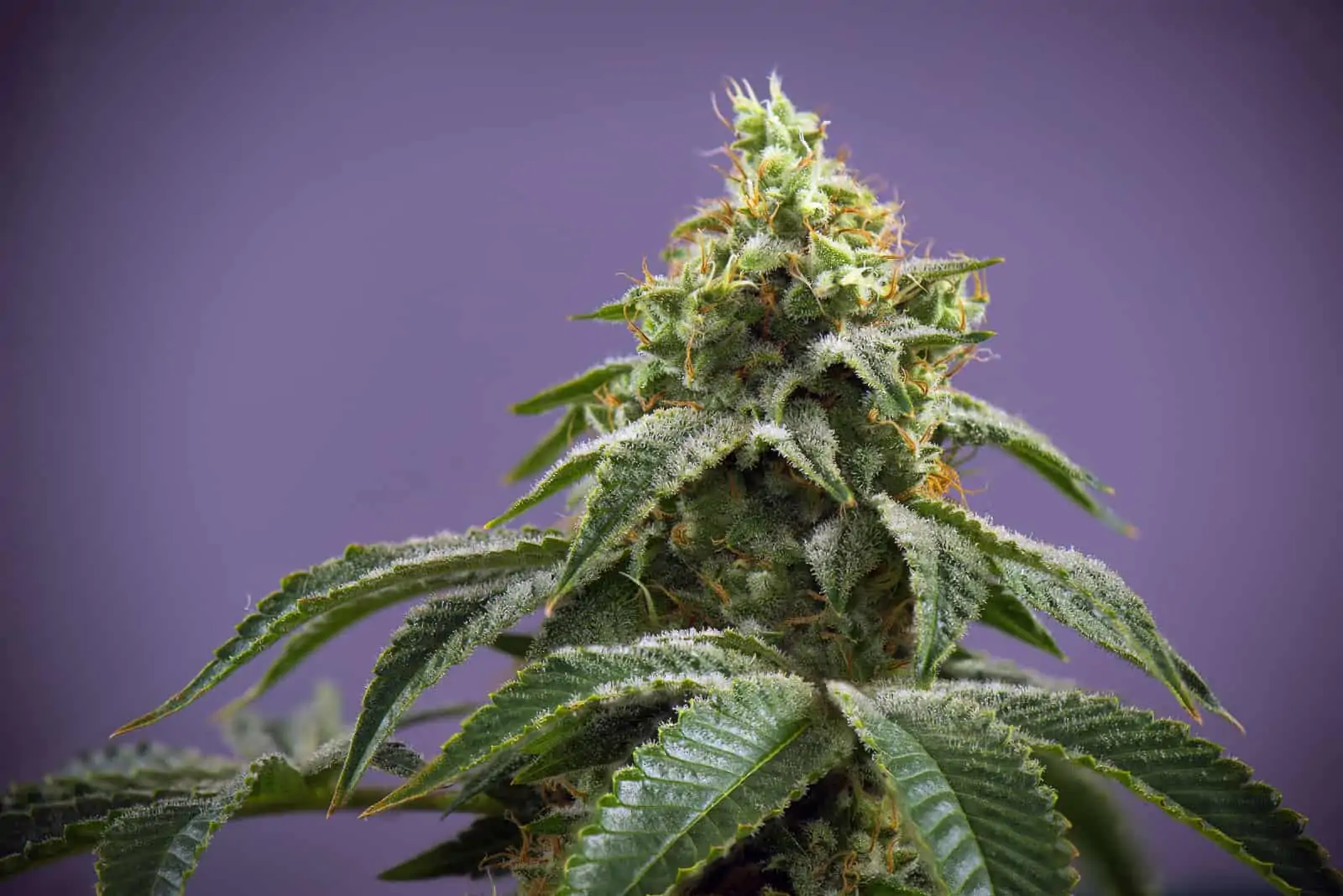



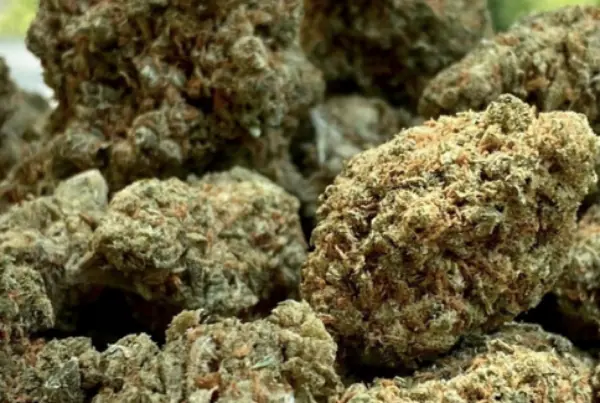
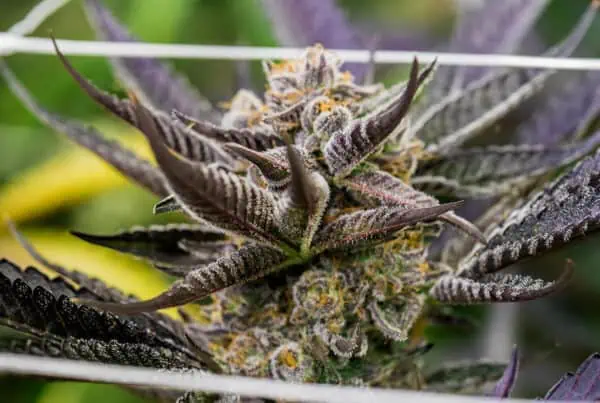
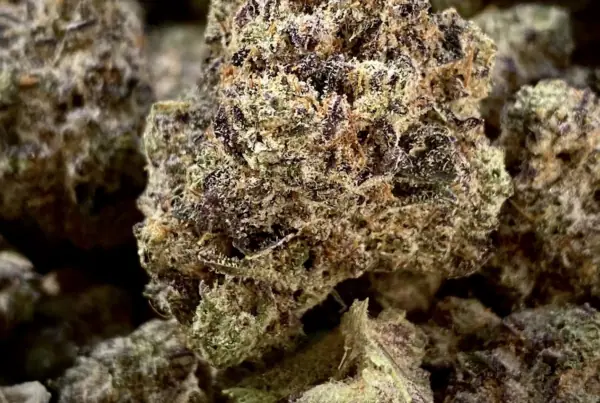



 Jeff was involved in an accident where he endured a traumatic brain injury. He had a week-long stay in ICU where brain surgeons
Jeff was involved in an accident where he endured a traumatic brain injury. He had a week-long stay in ICU where brain surgeons  100% risk free money back guarantee within 48 hours after purchase if student has not completed any of the courses or exams.
100% risk free money back guarantee within 48 hours after purchase if student has not completed any of the courses or exams.